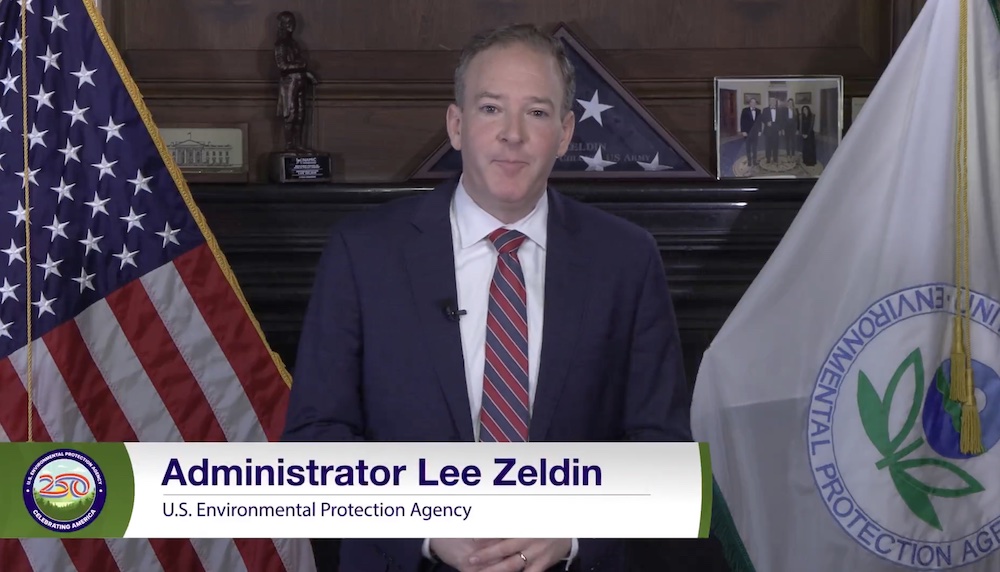
- Details
- By Chez Oxendine
- Energy | Environment
The Environmental Protection Agency has announced plans to terminate a $7 billion solar energy program that supports projects in marginalized communities, including more than $500 million earmarked for tribal lands.
The agency said it will end the Solar For All program, which allocated $7 billion to 63 grant recipients for use in financing and developing solar projects. Six tribal-focused organizations received $504 million in Solar for All funding when the program launched in April 2024.
The program faced uncertainty earlier this year when funding was frozen in January following a memo from the U.S. Office of Management and Budget. That freeze was lifted in March, allowing tribal recipients to access their grants and begin projects.
Without continued access to that funding, many tribal projects are going to falter at a critical point, said Daniel Wiggins, Jr., executive director of the Midwest Tribal Energy Resources Association, or MTERA.
MTERA, which received a $62 million grant award last year, had already laid groundwork for projects supporting each of its 35 member tribes in the Great Lakes region, Wiggins said. Now, that work is upended, with no clear path forward.
“This program was probably one of a kind - we had strategies in place to target every reservation in the Midwest,” Wiggins told Tribal Business News. “Pulling this money out from under us isn’t just devastating to the tribes, but to the communities and regions where those tribes reside — regions that would have had positive economic and environmental impacts with each of the subawards we were making.”
Solar for All is part of the Greenhouse Gas Reduction Fund, a $27 billion clean energy program under the Inflation Reduction Act. Congress repealed the fund under the One Big Beautiful Bill Act, which President Trump signed into law on July 4, 2025. The fate of Solar for All under the new law remained unclear until Thursday, when EPA Administrator Lee Zeldin announced via a video post on X that the program would be terminated.
The EPA cited the law's passage as justification for terminating the program, with a spokesperson saying the agency is "working to ensure Congressional intent is fully implemented in accordance with the law."
Zeldin said during the video that Solar for All funding was being “diluted” by its progress through primary awardees down to subawardees, sometimes changing hands up to “four times,” per his post. He did not provide evidence of the claim, and the EPA press office did not respond to emails or calls for comment by Tribal Business News.
“As many grants go into passthrough after passthrough, each middle man takes their own cut — at least 15% by conservative estimates,” Zeldin said in the video.
Before Zeldin’s announcement, rumors of a termination prompted a response from Indian Country, according to an op-ed published by Native News Online. The money would help provide everything from lowered utility costs to workforce development in supported areas, a coalition of energy experts wrote.
“It is clear that the electricity demand in this country is not diminishing any time soon,” Catherine Zingg, policy director for Tribal Energy Alternatives, said in a statement. “By disinvesting in our tribal communities that are still overly burdened, that face brownouts, that see some of the highest electricity bills, we are continuing the narrative to the American people that some communities matter more than others. More than unlawful, this is harmful to the tribes we work with.”
The Trump administration’s move to end Solar for All falls in line with other plans to terminate the rest of the greenhouse gas fund. That includes the National Clean Investment Fund (NCIF), which allocated $14 billion to develop “green bank” financing coalitions, and the Clean Communities Investment Accelerator, which allocated $6 billion for localized financial support for renewable energy projects.
Both of those programs were subject to an attempted termination in March. In both cases, funds were already obligated — and just as financing coalition Climate United and others continue to challenge the EPA's termination efforts in court, so too will Solar for All grantees, Wiggins said.
“We’re looking at appealing the termination, if appeal doesn't work, we’ll consider other legal remedies,” Wiggins said. “In the meantime, we’re going to have to strategize and take a look at what we can do with some of our partners.”
One partner is the nonprofit Alliance for Tribal Clean Energy, which supports several Solar for All grantees. President and CEO Cheri Smith told Tribal Business News that the EPA’s termination of the program represented a “blatant assault” on tribal sovereignty — but one that the Alliance has been prepared for since the current administration took office.
“There will be lawsuits I'm sure. We are not waiting for those decisions, because time is ticking. These projects are shovel-ready and are losing momentum every day without disbursement,” Smith said. “We have a platform and capital stack planning tools and experts within our own team and we are planning to move forward and keep the consortia together with funding from other sources.”
Even with planned support from the Alliance’s Indigenous Power and Light Fund, disruptions lie ahead, EPA’s termination of Solar for All funds will halt momentum in communities that badly need it.
“This is eliminating energy poverty in the form of tribal members, especially in the plains and in the South where discriminatory energy rates are so high, tribal members are paying double or more. This was relief for those issues,” Smith said. “This isn't about politics, this really is human, very human. This is a humanitarian assault.”
